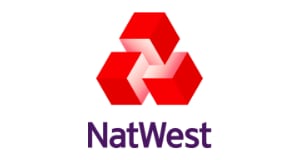Complete Guide on Remortgaging

If you’re coming to the end of your current mortgage deal, but are unsure of how to negotiate a remortgage deal with mortgage lenders, let Believe Money help. In this complete guide to remortgaging we’ll detail everything you need to know so you can make informed decisions about remortgaging your property.
If you want to save money with lower mortgage repayments, access equity, switch to a fixed rate deal, consolidate debt, or switch lenders, read on to find out everything you need to know about remortgaging.
- We find you the best mortgage deal from our panel of top lenders
- Our bespoke technology makes everything easy
- Our friendly, expert team supports you all the way
- Access to exclusive offers
- Great mortgage deals without the hassle


Why do homeowners need to remortgage?
Overall, the most common reasons for remortgaging are related to saving money by securing a lower interest rate or switching to a fixed or variable rate, accessing equity by releasing by remortgaging, or consolidating debt and improving financial stability.
Securing a lower interest rate
One of the most common reasons for remortgaging is to take advantage of lower interest rates. This can help homeowners save money on their monthly mortgage payments and over for the long term.
Switching to a fixed rate deal
Homeowners with variable rate mortgages may want to remortgage to switch to a fixed rate mortgage. This can provide greater stability and predictability in monthly payments, which can be helpful for budgeting and planning.
Releasing equity
Remortgaging can be a way to release equity in a property, which can be used for home improvements, debt consolidation, or other financial needs.
Consolidating debt
Homeowners may want to remortgage to consolidate high-interest debt, such as credit card debt or personal loans, into a single, monthly mortgage payment with lower interest.
Switching lenders
Homeowners may remortgage to switch to a different mortgage lender if their existing lender is not meeting their needs, or if they find a better deal elsewhere.
Shortening the mortgage term
Homeowners may remortgage to shorten the length of their mortgage term, which can help them pay off their mortgage faster and reduce the amount of interest they pay over time.

What eligibility criteria do lenders have for remortgaging?
The eligibility criteria for remortgaging varies depending on the lender, but some typical requirements include:
Credit score
Lenders will typically look at a borrower’s credit score to assess their creditworthiness and ability to repay the loan. A good credit score can improve the chances of being approved for a remortgage and may also result in more favourable terms and interest rates.
personal Income
Lenders will want to ensure that a borrower has a reliable and sufficient income to repay the remortgage. This may involve reviewing pay statements, tax returns, or other documentation to verify income.
Employment status
Lenders will typically want to see evidence of stable employment, as this can increase the likelihood of a borrower being able to make their monthly mortgage payments.
Self-employed borrowers may need to provide additional documentation, such as tax returns and profit and loss statements, to demonstrate their income and financial stability.
Value of the property
Lenders will also assess the value of the property being used as collateral for the remortgage. This may involve a property appraisal to determine the current market value and ensure that it is sufficient to secure the loan against.
Other factors that may be taken into consideration include: the borrower’s existing mortgage and payment history, the amount of equity in the property, and the loan-to-value ratio.
It’s important to note that eligibility criteria can vary significantly between lenders, so to ensure you’re getting the best deal to meet your specific needs, you should research your options and compare offers carefully to find the best deal for you.
How much does it cost to remortgage?
Remortgaging a house doesn’t come free. It’s crucial you understand the financial implications of remortgaging before you enter into a legally binding contract.
The cost of remortgaging in the UK can vary depending on a number of factors, including the lender, the type of mortgage, and the value of the property. Some common costs associated with remortgaging include:
Arrangement fees
These are fees charged by a lender for setting up a remortgage. Arrangement fees can range from a few hundred to several thousand pounds, depending on the lender and the type of mortgage.
Valuation fees
These are fees charged by the lender to assess the value of the property being used as collateral for the remortgage. Valuation fees typically range from a few hundred to several hundred pounds.
Legal fees
These are fees charged by a solicitor or conveyancer to handle the legal aspects of the remortgage, such as transferring ownership of the property to the new lender.
Legal fees can range from a few hundred to several thousand pounds, depending on the complexity of the transaction and the legal services required.
Early repayment fees
Some lenders may charge an exit fee if the borrower pays off their existing mortgage early to remortgage with a new lender. Early repayment fees can range from a few hundred to several thousand pounds, depending on the lender and the terms of the existing mortgage.
In some cases, lenders may offer to waive or reduce certain fees as part of a remortgage deal, so it’s important to shop around and compare offers from multiple lenders.
By understanding the costs associated with remortgaging, borrowers can make an informed decision about whether it’s the right option for their financial situation.
How to compare different mortgage deals and products
When comparing remortgage deals, there are several key factors to consider:
Interest rates
The interest rate is the cost of borrowing money and is one of the most important factors to consider when comparing remortgage deals. Borrowers should look for a competitive interest rate that will save them money over the life of the loan.
Fees
Remortgage deals can come with a variety of fees, such as arrangement fees, valuation fees, legal fees, and exit fees. Borrowers should consider the total cost of these fees when comparing remortgage deals, and look for options that offer reasonable fees or fee waivers.
Loan-to-value ratio
The loan-to-value (LTV) ratio is the amount of the remortgage compared to the value of the property. Borrowers with a lower LTV ratio may be eligible for lower interest rates and more favourable terms.
Repayment terms
Borrowers should consider the repayment terms when comparing remortgage deals. This includes the length of the mortgage term, the type of interest rate (fixed or variable), and the frequency of payments (monthly, bi-weekly, etc.). Borrowers should look for terms that suit their financial situation and goals.
Flexibility
Borrowers should also consider the flexibility of the remortgage deal. This includes options such as overpayments, underpayments, and the ability to switch to a different mortgage product without incurring penalties. Borrowers who value flexibility should look for remortgage deals that offer these features.
Ultimately, shop around and compare offers from multiple lenders to ensure that you are getting the best deal possible. By considering these factors when comparing remortgage deals, you can find an option that best suits your financial situation and goals.
Understanding the remortgaging process
Before remortgaging, to help reduce stress, it’s a good idea to understand the remortgaging process so you know what to expect. This way you’re prepared for the process and avoid surprises.

The process of remortgaging typically involves several steps, including:
- Application process: The first step in remortgaging is to apply for a new mortgage with a lender. This may involve providing financial information such as income, assets, and liabilities. The lender will also conduct a credit check to assess your creditworthiness.
- Valuation requirements: Once you’ve been approved for a remortgage, the lender will typically require a valuation of the property to ensure that it is worth the amount being borrowed. This may involve hiring a professional surveyor to conduct a physical inspection of the property and provide an estimate of its value.
- Legal requirements: The next step in the remortgaging process is to complete the legal requirements, which may involve hiring a solicitor or conveyancer to handle the legal aspects of the transaction. This may include transferring ownership of the property to the new lender and ensuring that all legal documents are in order.
- Time to complete: The time it takes to complete the remortgage process can vary depending on a number of factors, including the complexity of the transaction, the lender’s requirements, and the efficiency of the solicitor or conveyancer. In general, the process can take several weeks to several months to complete.
Top risks associated with remortgaging
As with taking out any loan, remortgaging comes with risks. Common risks include:
Interest rate risk
One of the biggest risks associated with remortgaging is the potential for interest rates to increase in the future. If interest rates rise significantly, borrowers with variable rate mortgages may find themselves facing higher monthly payments, which could put a strain on their finances. This risk can be mitigated by opting for a fixed rate mortgage, which provides more certainty around monthly payments.
Negative equity
Remortgaging can also put borrowers at risk of negative equity. Negative equity occurs when the outstanding balance on the mortgage is greater than the value of the property. This can occur if the property value decreases or if the borrower takes out too much equity from the property.
Negative equity can make it difficult for borrowers to sell the property or remortgage in the future, as they may not have enough equity in the property to cover the outstanding mortgage balance.

Credit rating risk
Remortgaging can impact the borrower’s credit rating in a number of ways. If the borrower misses payments or defaults on the remortgage, it could negatively impact their credit score and make it more difficult for them to obtain credit in the future.
Similarly, applying for multiple mortgages or loans within a short period of time can also have a negative impact on the borrower’s credit score.
Early repayment charges
Some remortgage deals come with an early repayment charge, which are fees that borrowers must pay if they pay off the mortgage early or switch to a different mortgage product. These charges can be significant, particularly in the early years of the mortgage, and can limit the borrower’s flexibility to switch to a better deal in the future.
Fraud risk
Finally, remortgaging can put borrowers at risk of fraud, particularly if they are dealing with a less reputable lender or broker. This can include things like identity theft, fraudulent mortgage applications, or misleading or inaccurate advice from brokers.
Borrowers should be cautious and do their due diligence when selecting a lender or broker to work with.
By understanding these risks and taking steps to mitigate them, you can make informed decisions about whether or not to remortgage and ensure that you are making a sound financial decision.
This may involve conducting thorough research, seeking professional advice, and carefully reviewing the terms and conditions of any remortgage offers.
Let Believe Money help you broker your new mortgage deal
When you work with Believe Money, you get access to a wider range of mortgage products, expert advice, and support throughout the remortgaging process and beyond. This can help to make the process of remortgaging smoother and more successful, and can ultimately help you to save money over the life of your mortgage.
For example, with us, you get:
Access to a wide range of mortgage products
We have access to a wide range of mortgage products from different lenders, which can be useful for borrowers who are looking for a remortgage product that meets their specific needs and circumstances. This can include things like flexible repayment terms, lower interest rates, or longer mortgage terms.

Expert advice
We have extensive expertise in the mortgage market and can offer guidance and advice on things like the best mortgage product for your needs, how much you can afford to borrow, and how to improve your credit rating (if you have a bad credit score).
This can be particularly valuable for first-time homeowners or borrowers who are unfamiliar with the remortgage process.
Time-saving
Remortgaging can be a time-consuming process, involving things like comparing different mortgage products, completing paperwork, and liaising with lenders and solicitors. By working with us, you can save time and reduce the stress associated with the remortgaging process.
Negotiating power
We can also use our expertise and knowledge of the market to negotiate better rates or terms with lenders on your behalf. This can result in lower interest rates or reduced fees, which can save you money over the life of your mortgage.
Ongoing support
Finally, we can provide ongoing support to you beyond the remortgaging process. This can include things like reviewing mortgage products periodically to ensure that they remain competitive, providing advice on mortgage-related matters, and helping you to navigate any issues that arise during the mortgage term.
To find out more about how Believe Money can help you remortgage your property, or to talk with us about the remortgage process, get in touch with our friendly team today.
About Company
We’re here to help you at every step of the remortgage journey. Contact us online or give us a call on 01302 591 360.
Why Use Believe Money?
Believe Money is an award-winning finance broker dedicated to offering the best range of affordable loan options. Whatever your circumstances or credit rating, we’re committed to getting you the best secured loan interest rates by searching our entire panel of secured loan providers.
Whatever you need a secured loan for, we’re here to help. Our specialist advisors are available Monday to Friday, so if you need any help please contact us online or give us a call on 01302 591 360.
How It works

Step 1.
Simple, easy application

Step 2.
We search a panel of lenders to find the right deal for you

Step 3.
Our bespoke technology and skilled advisors support you all the way

Step 4.
The money lands in your bank
account – usually within two weeks
We compare mortgages from our panel of the UK’s top lenders to get you the best deal.
BELIEVE
Mon – Thursday 9am – 7:00pm
Friday 9am – 3pm
Call from a mobile or Landline:





